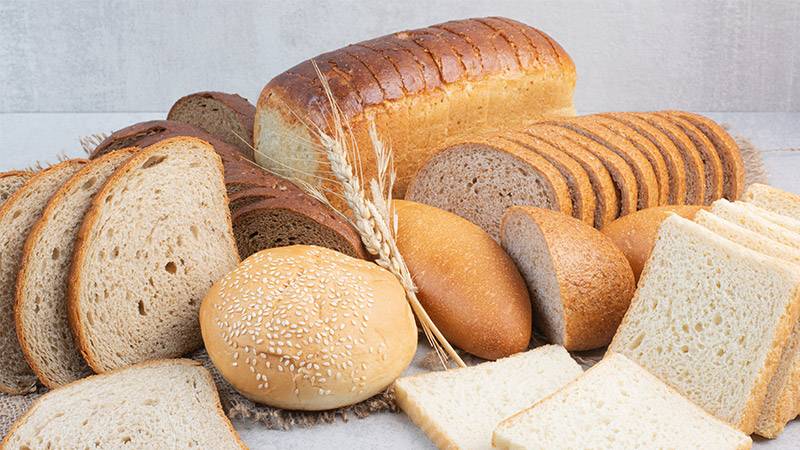The length of time it takes for compost to decompose can vary from a few months to a couple of years depending on several factors such as temperature, soil type, and the level of oxygen. If you leave your soil untouched, it can last for several years.
However, it’s essential to keep in mind that it may lose some volume over time, and the consistency may become denser and heavier as it continues to break down.
While basic compost can be ready within a few months, more complex composting techniques may take up to two years to fully decompose. Understanding the lifespan of compost is crucial for determining when it is ready for use in your garden or for other purposes.
So, let’s delve further into the factors that influence composting duration.
What Factors Influence The Decomposition Rate of Compost?
The decomposition rate of compost is influenced by various factors that you need to consider to achieve optimal results. These factors include:
- Carbon-to-Nitrogen (C: N) Ratio: The C: N ratio in your compost pile determines the rate at which organic materials break down. A balanced ratio of about 30 parts carbon to 1 part nitrogen is ideal for the decomposition process.
- Moisture Level: Compost should be moist but not too wet. Adequate moisture ensures that microorganisms responsible for decomposition can thrive. Too much water can lead to a lack of oxygen, causing the compost to become anaerobic.
- Aeration: Oxygen is essential for the aerobic decomposition process. Turning or aerating the compost pile regularly helps to introduce fresh oxygen and prevent the formation of odor-causing anaerobic conditions.
- Particle Size: Shredding or chopping organic materials into smaller pieces increases their surface area, allowing microorganisms to break them down faster.
- Temperature: Higher temperatures speed up the decomposition process. Turning the compost pile regularly can help maintain an optimal temperature range of 110°F to 160°F (43°C to 71°C).

What Is The Role Of Microorganisms In Composting?
Microorganisms such as bacteria, fungi, and actinomycetes are the workhorses of the composting process. They break down complex organic compounds into simpler forms, releasing heat and converting nutrients into a plant-available state.
These microorganisms thrive in a well-balanced compost pile with ample oxygen, moisture, and the right carbon-to-nitrogen ratio.
The breakdown of organic materials occurs in two stages: the mesophilic phase and the thermophilic phase.
During the mesophilic phase, which takes place at lower temperatures (68°F to 104°F or 20°C to 40°C), bacteria and fungi begin breaking down the organic matter. This phase can last several weeks.
As the temperature rises, the thermophilic phase begins. Thermophilic bacteria (such as Bacillus and Streptomyces) dominate this phase, accelerating the decomposition process.
The heat generated can reach temperatures as high as 160°F (71°C). During this phase, weed seeds and pathogens are destroyed, resulting in a more stable and nutritious compost.

Compostable Materials And Their Breakdown Periods
When it comes to composting, not all materials are created equal in terms of decomposition rates. Some materials break down faster, while others take longer to complete the composting process.
Let’s take a closer look at the breakdown periods of some common compostable materials:
| Compostable Material | Breakdown Period |
|---|---|
| Fruits and vegetable peels | 2-4 weeks |
| Grass clippings | 2-4 weeks |
| Coffee grounds | 2-5 weeks |
| Leaves | 3 months – 1 year |
| Paper products | 2-6 months |
| Wood chips | 6 months – 2 years |
It’s important to consider this when building your compost pile and turning the materials regularly to ensure even breakdown and a consistent mix.
Is There Any Differences Between Green And Brown Materials?
In composting, materials are often categorized into two main groups: green and brown. Green materials consist of nitrogen-rich substances such as fresh grass clippings, vegetable scraps, and coffee grounds.
These materials are often high in moisture and help accelerate the composting process. On the other hand, brown materials are carbon-rich materials like dried leaves, wood chips, and paper products. These materials add bulk and improve airflow in the compost pile.
When combined properly, a balance of green and brown materials creates an optimal environment for decomposition.

How does Particle Size Impact Decomposition Rates?
Particle size plays a crucial role in determining how quickly compostable materials break down. Finely shredded materials have a larger surface area, allowing for faster decomposition.
Larger particles take longer to break down as the internal microbial activity is limited. Therefore, it’s recommended to chop or shred larger compostable materials like branches or cardboard into smaller pieces to expedite the decomposition process.
In the research journal findings, it was observed that during the initial two days of incubation, the decomposition rate of rye increased as particle size decreased.
However, after this period, the trend reversed. After 65 days, it was noted that 8% more carbon (C) had decomposed in the 7-cm residues compared to the 0.03-cm ones.
How Can You Extend The Lifespan Of Compost?
Maintaining your compost pile is essential for prolonging its lifespan. By utilizing proper maintenance techniques, you can ensure that your compost remains rich in nutrients, odor-free, and well-balanced. Here are some key maintenance practices to adopt:
Regularly monitor temperature: Compost generates heat as it decomposes. Monitoring the temperature can give you insights into the composting process. Aim for a temperature range of 120°F to 160°F (49°C to 71°C) for efficient decomposition.
Add amendments if necessary: If your compost is lacking specific nutrients, add appropriate amendments to balance the nutrient content. For example, if your compost lacks nitrogen, incorporate nitrogen-rich materials like grass clippings or coffee grounds.
Turn the pile: Turning the compost regularly helps distribute the decomposing material evenly, ensuring that all parts of the pile receive sufficient aeration and facilitating faster breakdown.
Keep out unwanted materials: Avoid adding diseased plants, meat, dairy products, or oily substances to your compost pile, as these can attract pests and create unpleasant odors. Stick to biodegradable materials, such as fruit and vegetable scraps, yard waste, and shredded paper.
Exploring Storage Options To Preserve Compost Quality
Preserving the quality of your compost even after it has reached maturity is essential. Proper storage helps retain the nutrients, moisture, and overall integrity of the compost until it is ready to be used. Here are some storage options to consider:
| Storage Option | Benefits |
|---|---|
| Compost bins | These enclosed containers provide protection against pests, maintain the compost’s moisture level, and help manage odor. Choose bins with proper ventilation to ensure adequate airflow. |
| Compost tumblers | Tumblers make it easy to turn and aerate the compost, accelerating the decomposition process. They also offer pest control and odor management benefits. |
| Used bags or bins | Repurposing old bags or bins as containers for compost allows for cost-effective storage. Ensure the containers have proper drainage and ventilation. |
| Mulch pits | Creating a dedicated area in your garden for compost storage can save space and provide an easy way to incorporate compost into your soil. Simply bury the compost in a designated pit and cover it with soil or mulch. |

Frequently Asked Questions
How Long Does Compost Last In A Garden?
Compost can take anywhere from a few months to a year to fully break down in a garden, depending on factors like temperature, moisture levels, and the types of organic materials being composted. Regularly turning the compost pile and adding green and brown materials can speed up the decomposition process.
Can You Use Old Compost?
Yes, you can use old compost in your garden. While the nutrients in the compost may have partially broken down over time, it can still provide beneficial organic matter and improve soil structure. However, it’s best to mix it with fresh acidic compost or other soil amendments to ensure a balanced nutrient composition.
Will Compost Go Bad If Not Used?
Compost does not go bad if not used immediately. It can be stored for an extended period without losing its effectiveness. Keep it in a covered container or pile to prevent it from drying out or getting too wet. Adding organic materials regularly and turning the pile occasionally can help maintain its quality.
How Can You Tell If Compost Is Ready?
You can tell if compost is ready by its appearance and smell. Ready compost should be dark brown and crumbly, with an earthy smell. It should no longer resemble the original organic materials used to make it. Additionally, if you see lots of earthworms in the compost, it’s a good sign that it’s ready to be used.
Conclusion
Overall, compost has proven to be a highly effective and eco-friendly method of waste management. Its decomposition process can vary, but with proper care and attention, compost can last anywhere from a few months to a year. By understanding the factors that influence compost decomposition and implementing best practices, you can ensure the longevity and quality of your compost.
So, whether you’re a seasoned gardener or a beginner, composting is worth the effort for a greener and more sustainable future.

I am a graduate of Bangladesh Agricultural University, where I delved into various agricultural disciplines, equipping me with a profound understanding of agriculture. Beyond academics, I have hands-on experience in gardening and crop cultivation. My passion is to embrace sustainable farming and horticulture. With a BSc in Agriculture, I am dedicated to promoting environmentally conscious and efficient agrarian practices.
Bachelor of Science (BSc) in Agriculture (Hons.)
Master of Science. (Sustainable Agriculture & Food Security ) (MS)
Bangladesh Agricultural University




